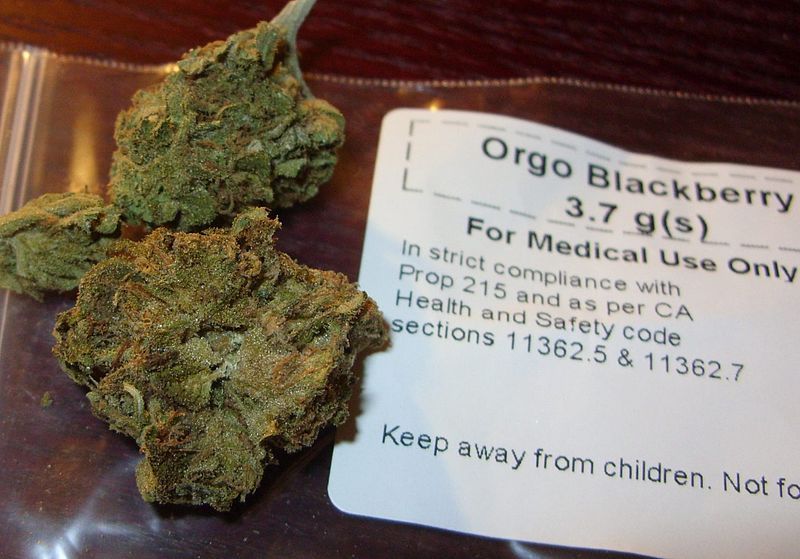Top Medical Marijuana Doctor Clinton MS for Specialist Examination
Top Medical Marijuana Doctor Clinton MS for Specialist Examination
Blog Article
Shedding Light on What Medical Marijuana Can Treat: a Thorough Evaluation of Its Restorative Qualities
In recent years, there has actually been an expanding interest in the healing potential of medical marijuana. While anecdotal proof is plentiful, a comprehensive exam of the scientific information regarding the efficiency of clinical marijuana in treating these conditions is necessitated.
Chronic Pain Monitoring
Persistent discomfort monitoring continues to be an important element of healthcare, demanding an extensive method for effective therapy. In current years, clinical cannabis has become a potential therapeutic option for people struggling with persistent pain conditions. The endocannabinoid system, which plays an important function hurting modulation, has actually been targeted by cannabis-based therapies to ease signs and enhance lifestyle for people.

Furthermore, clinical cannabis provides an encouraging option for patients that experience unbearable side effects from typical discomfort medications. Its capacity to deal with discomfort through a various system makes it a useful addition to the collection of treatments readily available for chronic discomfort management.
Epilepsy Therapy Potential
Clinical cannabis has revealed appealing possibility in the treatment of epilepsy, using a novel restorative approach for handling seizures in people. Epilepsy is a neurological problem characterized by recurrent seizures, impacting individuals of all ages. Standard therapies for epilepsy include antiepileptic medications, yet these medications might not work for all clients and can have considerable negative effects.
Research on using clinical cannabis for epilepsy has exposed motivating outcomes. Cannabidiol (CBD), a non-psychoactive compound found in cannabis, has actually been specifically highlighted for its anticonvulsant homes. Researches have actually shown that CBD can decrease the regularity and extent of seizures in patients with treatment-resistant forms of epilepsy, such as Dravet syndrome and Lennox-Gastaut syndrome.
Moreover, the FDA has actually approved a CBD-based drug, Epidiolex, for the treatment of seizures connected with these serious kinds of epilepsy. This landmark highlights the expanding acknowledgment of clinical marijuana as a valuable therapeutic choice for handling epilepsy and supplies expect individuals that have actually not reacted well to traditional therapies.
Queasiness Relief Perks
The relief of queasiness with making use of cannabis has been increasingly recognized for its therapeutic advantages in numerous clinical conditions. Nausea or vomiting and vomiting are typical signs experienced by clients undergoing chemotherapy, those with gastrointestinal problems, and people with chronic pain conditions. Clinical cannabis, with its active substances such as THC and CBD, has actually shown promise in providing remedy for nausea or vomiting.

In addition, clinical cannabis provides an all-natural choice for people who do not respond well to standard anti-nausea drugs or that experience extreme adverse effects from these drugs. Individuals undertaking chemotherapy, particularly, have reported significant renovations in their high quality of life when using marijuana to handle nausea. As research in this location remains to expand, medical cannabis is significantly being taken into consideration as an important option for nausea or vomiting relief in various clinical settings.
Anxiousness Reduction Results
Research studies have actually demonstrated the potential of marijuana in reducing anxiousness symptoms via its interaction with the endocannabinoid system. The endocannabinoid system plays a crucial duty in regulating feelings, including stress and anxiety, by keeping homeostasis in the body. Cannabinoids in cannabis, such as THC and CBD, connect with the endocannabinoid receptors in the brain, especially the CB1 and CB2 receptors, to regulate anxiety-related feedbacks.

People with problems like generalized anxiousness condition (GAD), social stress and anxiety condition, and post-traumatic tension problem (PTSD) may gain from the anxiolytic properties of marijuana (Medical Marijuana Card Clinton MS). Additional research study is needed to figure out optimal dosages, shipment methods, and long-term effects on anxiousness monitoring.
Potential for Swelling Control
With its recognized anti-inflammatory buildings, cannabis has actually revealed assurance in possibly managing inflammation within the body. Swelling is the body's all-natural feedback to injury or infection, but when it becomes persistent, it can add to numerous diseases such as arthritis, inflammatory bowel illness, and also cardiovascular disease. Research suggests that the cannabinoids found in marijuana, such as THC and CBD, can assist control the immune response and minimize inflammation.
Researches have revealed that marijuana can connect with the endocannabinoid system, which plays a critical role in managing swelling. By targeting the cannabinoid receptors, marijuana compounds can modulate the immune feedback, causing a decline in inflammation levels. This makes best ortho doctor near me cannabis a possible candidate for managing inflammatory conditions where traditional therapies have actually dropped brief.
Moreover, cannabis-derived products like CBD oil have gotten popularity for their anti-inflammatory properties, with lots of people using them as a natural treatment for conditions connected with swelling. While even more study is needed to totally understand the mechanisms behind cannabis's anti-inflammatory results, present findings show encouraging outcomes for the potential use of clinical marijuana in managing inflammation.
Verdict
Finally, clinical marijuana has revealed appealing restorative properties in managing chronic discomfort, dealing with epilepsy, soothing nausea or vomiting, decreasing anxiety, and regulating inflammation. Its possible advantages in numerous medical conditions highlight the importance of additional research study and exploration right into its medicinal use. The proof recommends that clinical cannabis could be a useful option treatment alternative for individuals looking for remedy for a series of conditions and symptoms.
In current years, clinical cannabis has emerged as a possible therapeutic option for individuals enduring from chronic discomfort problems.Clinical cannabis has shown promising potential in the therapy of epilepsy, offering a novel therapeutic approach for managing seizures in individuals. As research study in this area continues to expand, medical marijuana is progressively being thought about as a useful choice for queasiness relief in various clinical setups.
In conclusion, clinical marijuana has shown promising healing residential or commercial properties in handling chronic discomfort, dealing with epilepsy, eliminating queasiness, lowering anxiousness, and regulating inflammation. The proof like it suggests that clinical cannabis can be a beneficial alternative treatment option for patients looking for relief from an array of signs and conditions.
Report this page